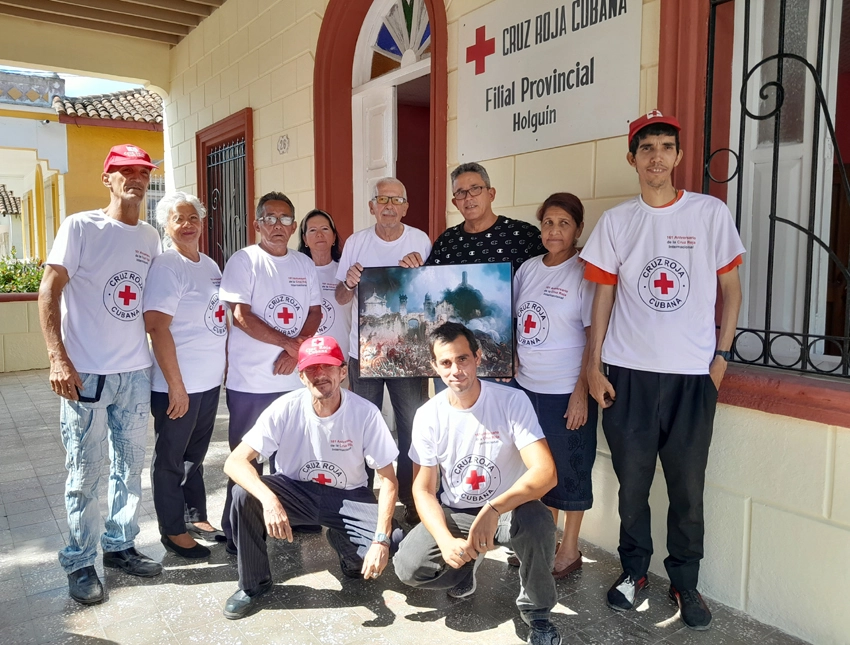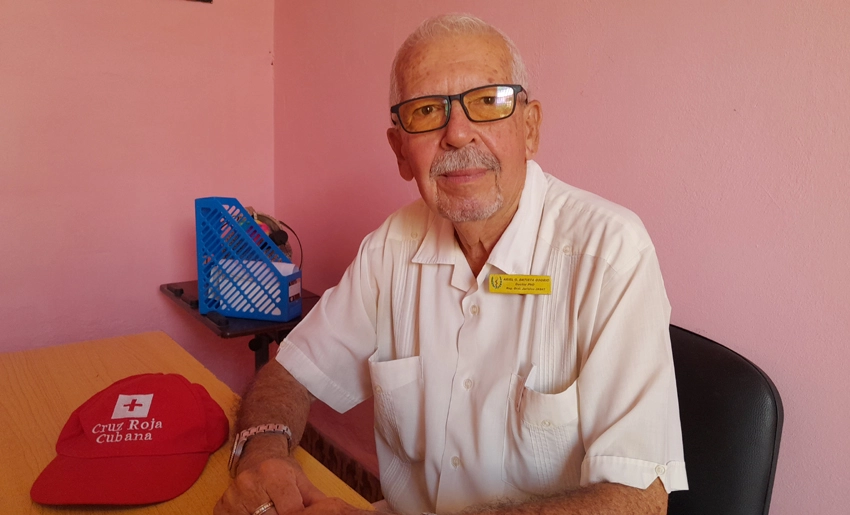The recent celebration of the World Red Cross and Red Crescent Day, this May 8, a date that honors the legacy of Henry Dunant, volunteer who founded this International movement 161 years ago, propitiated the conversation with someone who has dedicated his best years and efforts to the Holguin Provincial Branch of the Cuban Red Cross, Dr. Ariel Batista Osorio, who besides being a lawyer of the General Directorate of Health (DGS) is honorary vice-president of this organization in the territory.
How has your work been linked to the Cuban Red Cross?
“My history is long, because I have been serving there for 60 years. I entered the volunteer corps when I was a junior high school student. I have been in charge of a health area, director of the Regional Red Cross, when the former Regional was Holguín-Gibara, and then I became head of the Red Cross in Oriente Norte and later in Holguín province.
” At the same time with all this I have not stopped teaching, I continued working with the advisory tasks, the plans, for this reason the direction agreed to name me one of the two honorary vice-presidents”.
During so many decades dedicated to this work you must remember many stories that have marked your personal and professional life. Do you remember any in particular?
“When I was in charge of the Red Cross in the Regional Health Directorate, I once received a young man who was sent to me as an ambulance driver. We trained, prepared and educated this young man, later he was assigned to go to Angola and when he returned, one day when it had rained and the river was swollen, he was passing by the Marti Street bridge, on the Marañon River, and saw a child drowning. He did not hesitate, he jumped in to save him. He continued to be carried by the river current as far as Cables Street.

“When he had almost saved him, he went to pass under the bridge and an iron that was under the bridge gave him a blow in the head and he died, and the child drowned as a result. On the one hand because of the pain I felt for his death and that of the child, and on the other hand because of his great altruism, he did not hesitate for a moment as the Red Cross to jump into the river to save a child. So, the Red Cross is synonymous of humanism, of sensitivity, of putting oneself in the place of the other”.
What is the relevance of the existence of organizations such as the Red Cross?
“I really like all the humanitarian work carried out by agencies, foundations and organizations. I think that nowadays it is very important to give a hand and help those in need. That is why I have dedicated a great part of my life to the Red Cross in Holguin and if I had the possibility of choosing my path in life again, I would have chosen to be part of the Red Cross again.
“I spoke of the time when I joined the Red Cross as a high school student, I was 15 years old and the call was to join the student militias or join this force, because we needed the injection of fresh blood. And so we joined and I have been there for 60 years.
What does it mean to you to be part of the historical memory of the Cuban Red Cross in Holguín?
“I feel that the Red Cross is the biggest part of my life and that I have been useful, because I dedicated a lot of time to helping humanity and I also learned many things. On one occasion I had to attend the National School of the Red Cross in Havana and that helped me a lot, it taught me many things. I consider it was a great achievement in my life.
“I feel that I am a promoter of something as beautiful as the work of the Red Cross, saving lives, relieving the pain of others and helping to educate people, because as part of this work I conducted study circles in schools and community projects, it is a unique experience. So when I stop to think about the road I have traveled, I feel a healthy pride.
Ariel Batista’s story is multiplied in each one of the more than three thousand volunteers that the provincial branch currently has. They have added to their daily responsibilities, the purpose of helping others and contributing to save lives through their work as volunteers.
- Systemic Sclerosis, a Disease in Need of Publicity - 1 de July de 2025
- Holguin with the first Center for Research Resources in Health - 28 de June de 2025
- Activities in Holguin for the International Day against Drug Abuse - 26 de June de 2025

